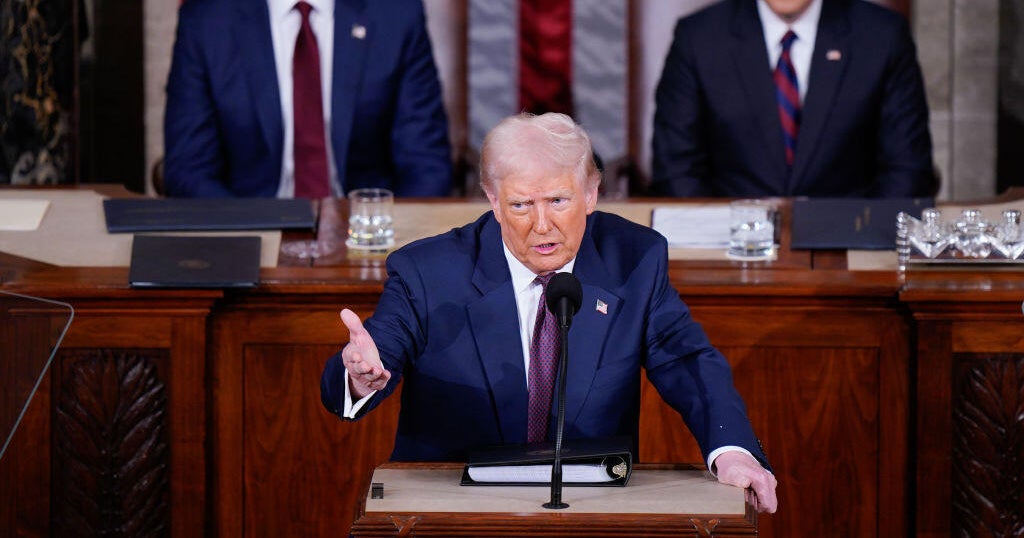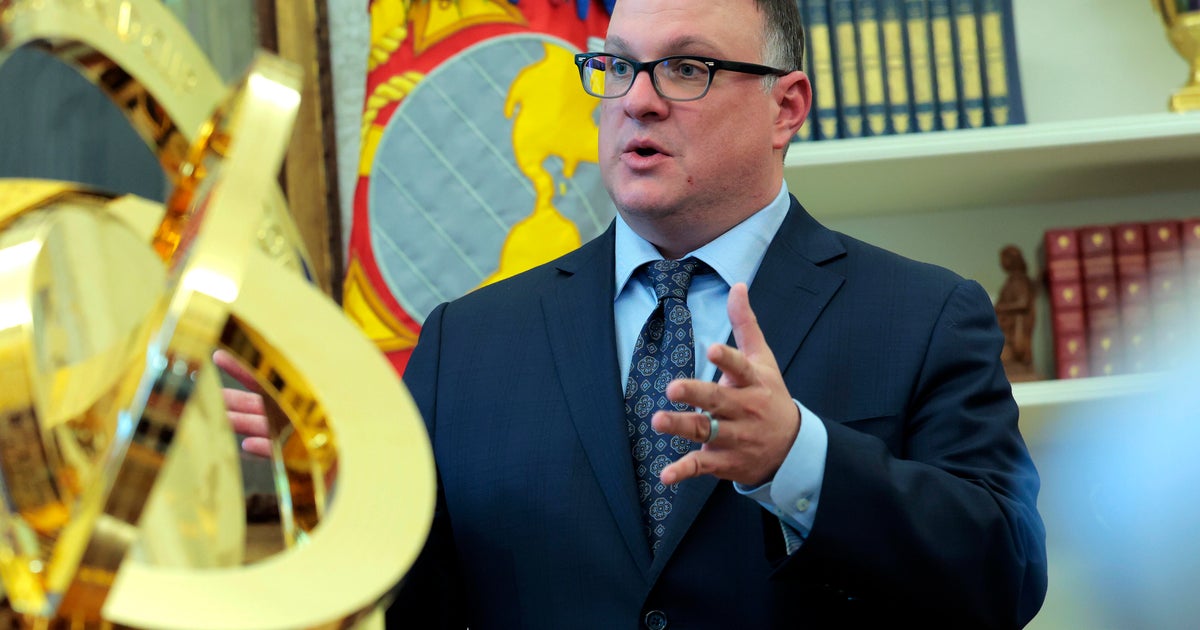Biden's American Jobs Plan and American Families Plan: What's in them and where the funding will come from
President Biden's ambitious agenda comes with a major price tag: In the first 100 days of his term, Mr. Biden's three major initiatives — the American Rescue Plan, which has been signed into law, and the proposed American Jobs Plan and the American Families Plan — have a combined cost of more than $6 trillion.
In comparison, the federal government spent slightly more than $6.5 trillion across all 2020, more than $3 trillion of which was deficit spending.
Republicans have balked at the costs. Not one GOP lawmaker voted for the $1.9 trillion rescue package in March and they're pushing back as the administration seeks another roughly $4 trillion in new spending.
Unlike the stimulus package, which relied on deficit spending, the president's next plans include a series of measures in the so-called "once in a generation" proposals that will pay for them — and Mr. Biden has vowed he will not raise taxes on those making less than $400,000 a year.
"What I've proposed is fair. It's fiscally responsible. It raises the revenue to pay for the plans I've proposed that will create millions of jobs and grow the economy," Mr. Biden said Wednesday in his first address to a joint session of Congress.
Mr. Biden says he is open to negotiating as some Republican lawmakers and centrist Democrats have already objected to tax hikes, but he said the new spending must be paid for. According to the White House, their tax proposals would raise enough revenue to cover both plans in 15 years.
Here's what's in each proposal, and how the White House plans to pay for it.
American Families Plan
The plan includes $1 trillion in spending on families and education while also providing $800 billion in tax cuts in an effort to promote economic prosperity and security.
$200 billion for universal pre-K for all 3- and 4-year-olds
$225 billion for child care including subsidies for low-and middle income families and money for providers and workers
More than $100 billion for two years of free community college for all
$225 billion for a national paid family and medical leave program
Extends the expanded Child Tax Credit, which means families will receive monthly checks totaling $3,600 for children under six and $3,000 for kids ages six through 17 through 2025
Makes the increased Child and Dependent Care Tax Credit as well as the Earned Income Tax Credit permanent
Make recently expanded premium subsidies under the Affordable Care Act permanent
Also includes scholarships for teachers, increased Pell Grants, expanded nutrition programs and more
The White House claims by implementing tax changes that take aim at the wealthiest Americans, the plan would be fully paid for over 15 years.
Raises the tax rate for the top bracket back to 39.6% from 37%, rolling back a change from President Donald Trump's 2017 Tax Cuts and Jobs Act.
Calls for taxing capital gains as regular income for households making more than $1 million paying the same 39.6% rate on capital gains and dividends, as well as close loopholes that allow wealthy taxpayers to avoid paying taxes on certain gains.
Includes $80 billion for the IRS over 10 years to increase enforcement and crack down on tax evasion among the wealthy, among other changes, which the administration claims would allow the IRS to collect an additional $700 billion over 10 years.
American Jobs Plan
The proposal calls for more than $2 trillion to rebuild the nation's crumbling infrastructure including roads, bridges and airports, as well as spending on what the administration calls "care" infrastructure a focus on long-term care for the elderly and disabled:
$621 billion for infrastructure like roads, bridges, rails and airports, as well as electric vehicles
$50 billion to improve infrastructure to withstand climate change
$111 billion for replacing lead pipes and upgrading drinking water systems
$100 billion for broadband
$213 billion to build and update affordable housing
$100 billion would go toward building and upgrading public schools
$400 billion for home and community care and industry workers
$180 billion in spending in research and development
$300 billion for manufacturing including strengthening supply chains
$100 billion for workforce development
All together, the administration claims it would be fully paid for with the passage of the Made in America Tax plan.
Raises the corporate tax rate to 28% from the current 21%
Calls on countries to set a global minimum tax on corporations in an effort to keep foreign countries from taking advantage by serving as tax havens
Increases the global minimum tax on U.S. multinational corporations to 21% up from 10.5% and calculates it on a country-by-country basis. It would also remove the rule allowing companies to not pay taxes on the first 10% of return on foreign assets
Imposes a 15% minimum tax on "book-incomes" reported to investors for large corporations with incomes over $2 billion.
Makes it harder for U.S. corporations to invert and claim to be a foreign company, ends deductions for moving jobs overseas, offers tax credits for bringing jobs back to the United States, eliminates tax credits and subsidies for the fossil fuel industry and removes other loopholes
Calls for increased tax enforcement with a focus on corporations, as does the American Families Plan



